Concrete countertops are a popular choice for both residential and commercial spaces due to their durability, versatility, and aesthetic appeal. However, like any other surface, concrete countertops are susceptible to staining from various sources such as food, beverages, oils, and household chemicals. Fortunately, there are several effective methods for removing stains from concrete countertops, allowing you to maintain their pristine appearance for years to come.
One of the most common methods for removing stains from concrete countertops is using a poultice. A poultice is a paste-like substance that is applied to the stained area and left to dry, drawing out the stain in the process. To make a poultice for concrete countertops, mix a powdered stain remover, such as trisodium phosphate (TSP), with water to create a thick paste. Apply the poultice to the stained area, covering it completely, and then cover it with plastic wrap to prevent it from drying out too quickly. Leave the poultice on the stain for at least 24 hours before removing it and rinsing the area with water.
Another effective method for removing stains from concrete countertops is using a commercial concrete cleaner or degreaser. These products are specifically formulated to break down and remove stains from concrete surfaces without damaging the material. Simply apply the cleaner or degreaser to the stained area according to the manufacturer’s instructions, allowing it to penetrate the stain before wiping it away with a clean cloth or sponge.
For stubborn stains that are difficult to remove with poultices or cleaners, sanding the affected area may be necessary. Use fine-grit sandpaper or a sanding block to gently sand the stained area, taking care not to damage the surrounding concrete. Once the stain has been sanded away, clean the area thoroughly with a mild detergent and water to remove any remaining residue.
In some cases, particularly for oil-based stains, applying a solvent such as mineral spirits or acetone may be necessary to break down the stain before cleaning it away. However, it’s essential to test the solvent on a small, inconspicuous area of the countertop first to ensure that it doesn’t cause any damage or discoloration.

Prevention is key to minimizing stains on concrete countertops. To prevent stains from occurring in the first place, seal your concrete countertops regularly with a high-quality concrete sealer. Sealing creates a protective barrier that helps repel liquids and prevent them from penetrating the surface of the concrete. Be sure to follow the manufacturer’s instructions for application and reapplication of the sealer to maintain its effectiveness over time.
Now, let’s discuss some common mistakes to avoid when removing stains from concrete countertops.
One common mistake is using harsh or abrasive cleaning products that can damage the surface of the concrete. Avoid using bleach, ammonia, or other acidic cleaners on concrete countertops, as they can etch the surface and cause discoloration.
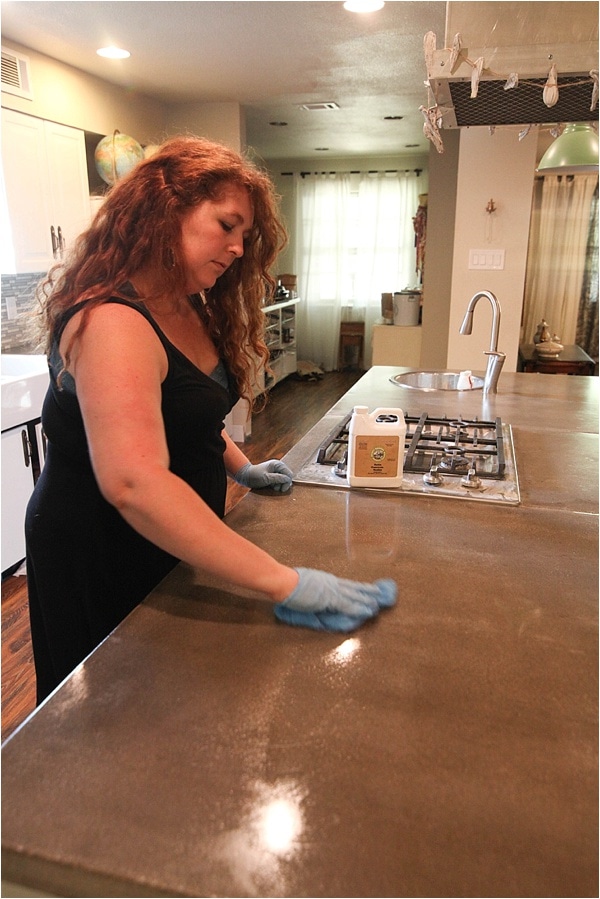
Another mistake is scrubbing the stained area too aggressively, which can exacerbate the problem by spreading the stain or causing damage to the concrete. Instead, use gentle, circular motions when applying cleaners or poultices and avoid using abrasive scrubbing pads or brushes.
It’s also important to avoid using hot water or steam to clean concrete countertops, as extreme temperatures can cause the concrete to expand and contract, leading to cracks or other damage.
Additionally, neglecting to reseal your concrete countertops regularly can leave them vulnerable to stains and damage. Be sure to follow the manufacturer’s recommendations for resealing frequency to ensure maximum protection against stains and other damage.
Finally, failing to address stains promptly can make them more difficult to remove over time. It’s essential to tackle stains as soon as they occur to prevent them from setting into the concrete and becoming more challenging to remove.
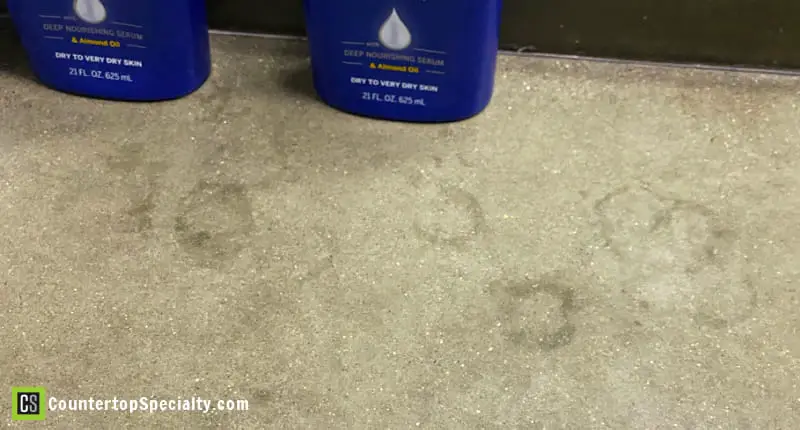
Can I use bleach to remove stains from concrete countertops?
Bleach is not recommended for removing stains from concrete countertops, as it can cause discoloration and damage to the surface. Instead, use a mild detergent or a commercial concrete cleaner specifically formulated for stain removal.
How often should I reseal my concrete countertops to prevent stains?
The frequency of resealing concrete countertops depends on several factors, including the type of sealer used and the amount of wear and tear the countertops endure. As a general rule, it’s recommended to reseal concrete countertops every 1-3 years to maintain optimal protection against stains and damage.
Can I use vinegar to remove stains from concrete countertops?
Vinegar is acidic and can etch the surface of concrete countertops, so it’s not recommended for removing stains. Instead, use a mild detergent or a commercial concrete cleaner formulated for stain removal.
Will sanding remove all types of stains from concrete countertops?
Sanding can be effective for removing certain types of stains from concrete countertops, particularly surface stains or those that have not penetrated deeply into the concrete. However, for stubborn or deep-set stains, other methods such as poultices or commercial cleaners may be more effective.
What should I do if I accidentally damage my concrete countertops while trying to remove a stain?
If you accidentally damage your concrete countertops while attempting to remove a stain, it’s best to consult a professional concrete contractor for repair options. Depending on the extent of the damage, repairs may involve sanding, patching, or refinishing the affected area to restore its appearance and integrity.
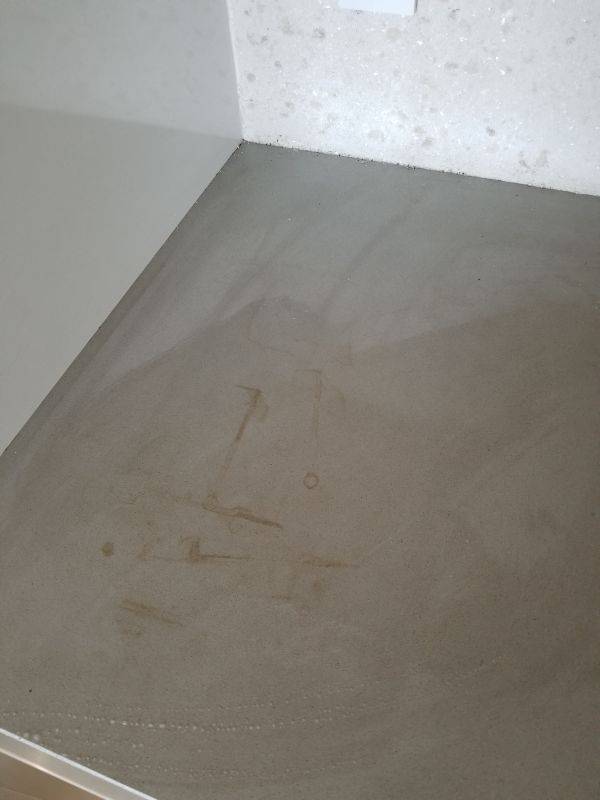
Removing Countertop Stains & Concrete Countertop Sealer
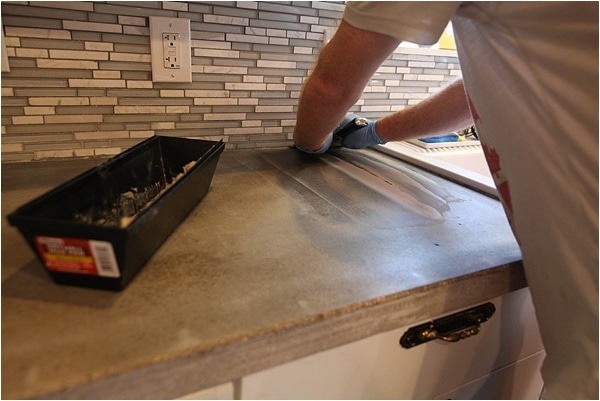
How to Remove Stains from Concrete Countertops – Concrete Network
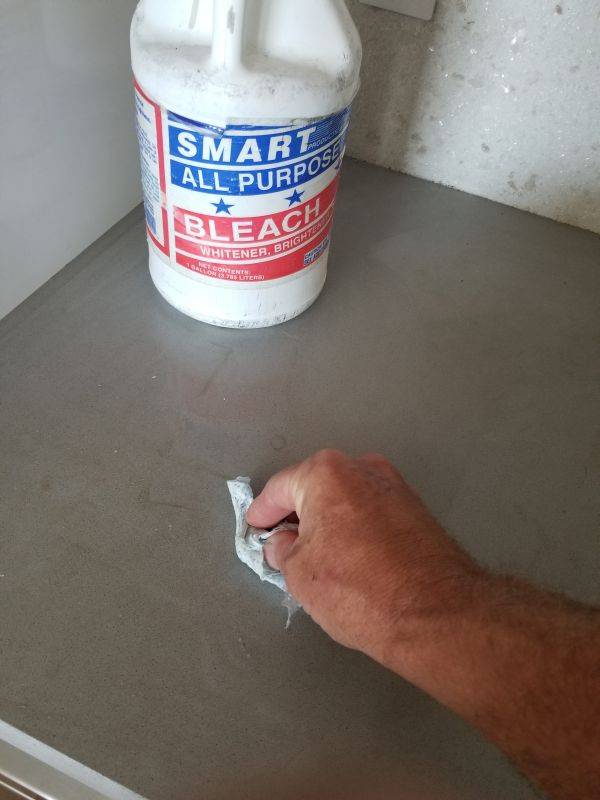
How To Get Stains Out of Concrete Countertops
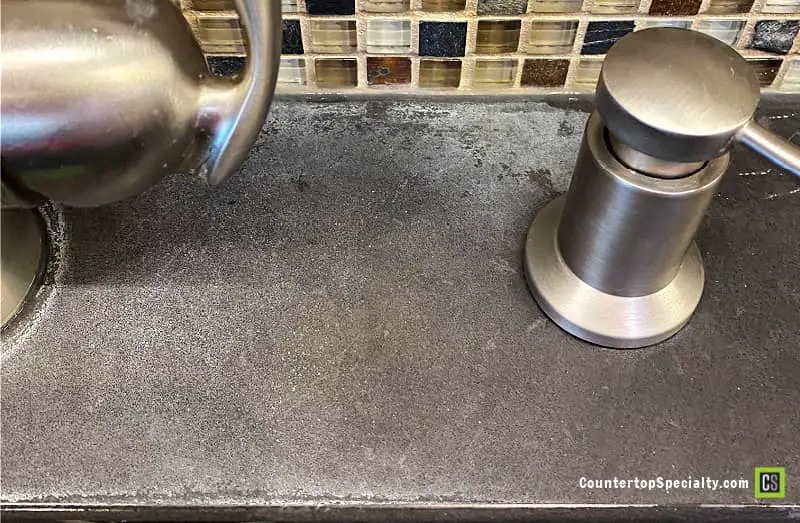
Removing Countertop Stains u0026 Concrete Countertop Sealer – Run To
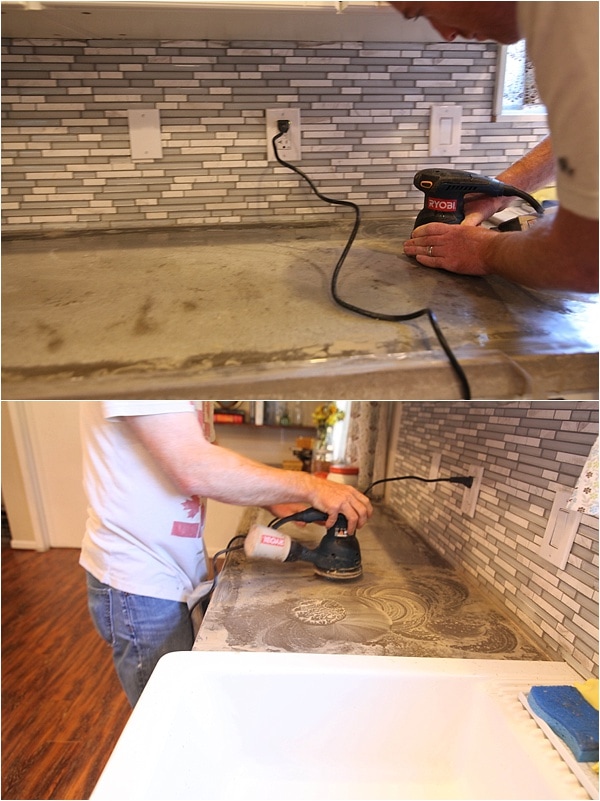
How to Polish, Seal and Restore a Concrete Countertop

How to Remove Surface u0026 Etched Stains from Concrete Countertops
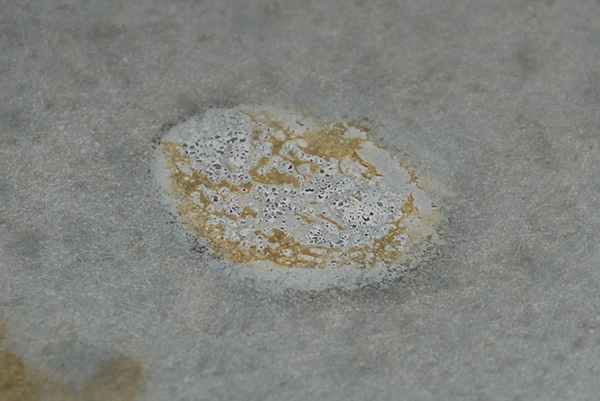
Related articles:
- Concrete Countertop Overlay
- Black Concrete Countertops
- Marble Look Concrete Countertops
- Light Grey Concrete Countertops
- Concrete Countertop Design Ideas
- Light Colored Concrete Countertops
- Epoxy On Concrete Countertop
- Concrete Countertops Designs
- Concrete Countertops That Look Like Wood
- White Concrete Countertops